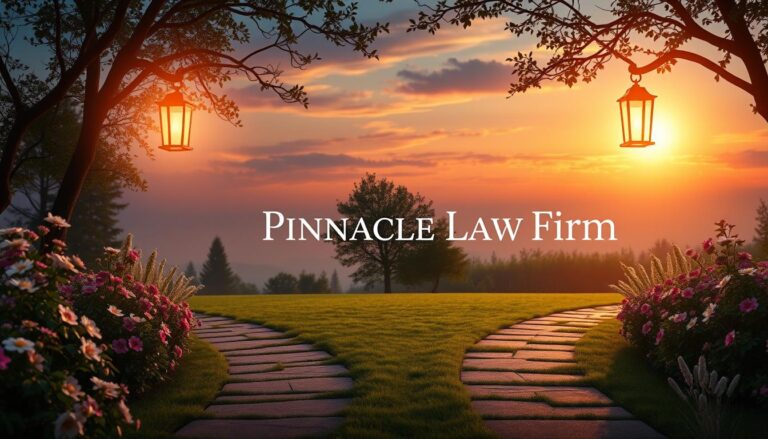Why Is Probate Bad: Estate Planning Explained
We know how complex the probate process can be. It’s a court-supervised way to check a will, pay off debts, and share out assets. While it’s sometimes needed, it can cause long delays, high costs, and loss of privacy. This can upset both those who inherit and those who manage the estate.
Key Takeaways
- The probate process can take years to complete, causing delays and complications for beneficiaries and estate administrators.
- Probate is known for its high associated costs, including court fees, legal fees, and other administrative expenses, which can substantially erode the value of the estate.
- Probate proceedings are a matter of public record, meaning all information about the deceased person’s assets and liabilities becomes accessible to the public.
- Probate can trigger family disputes and legal challenges, leading to costly litigation and emotional turmoil for loved ones.
- The court’s decisions in probate proceedings may not align with the decedent’s intentions, highlighting the importance of alternative estate planning methods.
At Pinnacle Law Firm, we help our clients understand the good and bad of probate. We look at other ways to plan estates, like living trusts and beneficiary designations. Our goal is to protect assets and loved ones while avoiding probate’s downsides.
Understanding the Probate Process in Estate Planning
Probate is a legal process that happens after someone dies. It involves the probate court checking the will, listing assets, paying debts and taxes, and giving out what’s left to the people named in the will. The court makes sure everything is done right.
Definition and Basic Components
Probate makes sure a will is valid and lets the executor give out the deceased’s stuff as the will says. This includes collecting the person’s belongings, paying off debts and taxes, and giving what’s left to the heirs or those named in the will.
Role of Probate Court
The probate court is key in settling an estate. It picks the executor, who manages the deceased’s stuff and debts. The court also checks if the will is good, values the estate, and makes sure the assets go to the right people.
When Probate Becomes Necessary
Probate is needed when there’s a valid will or when assets don’t avoid probate. It can help with disputes or when there are creditors. But, many try to skip probate because it can be slow, expensive, and public.
Why Is Probate Bad: Key Disadvantages Explained
Probate might seem like a must in estate planning, but it has many downsides. Knowing these can help you find better ways to manage your estate. This way, you can protect your assets and make sure your loved ones get what’s theirs without hassle.
One big disadvantage of probate is how long it takes. In many places, it can take 6 to 12 months, or even longer. This means your family might have to wait a long time to get what you left them, adding stress to an already tough time.
Another big disadvantage of probate is the lack of privacy. Since probate is public, everyone can see your estate’s details. This can be a big worry for those who want to keep their financial life private.
- Probate can lead to family fights and legal battles, causing a lot of stress and cost.
- The court might not follow what you wanted, leading to outcomes you didn’t plan for.
By knowing the key disadvantages of probate, you can plan better for your estate. You might choose to use living trusts instead. This way, you can avoid the problems of probate and make sure your assets go smoothly to your loved ones.

The Financial Impact of Probate on Estates
Probate can greatly reduce the value of an inheritance. It can take up to 10% of the estate’s value in costs. These costs include court fees, legal fees, and other administrative costs.
Court and Administrative Fees
Probate court fees vary by state and estate size. They usually range from $300 to $1,000 or more. Executor fees and other administrative costs also reduce the estate’s value.
Attorney Costs and Legal Expenses
Hiring a probate attorney is often needed. Attorney fees can be 3% to 5% of the estate’s value. This can be a big expense, especially for large estates.
Impact on Inheritance Value
The total probate costs and legal expenses can greatly reduce the estate’s value. This is especially hard for small estates, where these costs can take a big share of the estate settlement.
At Pinnacle Law Firm, we know how probate affects finances. We help our clients find ways to lower these costs. This way, we ensure your loved ones get the most from their inheritance. By planning ahead and using other estate planning tools, we protect your assets and increase your beneficiaries’ inheritance.
Time Delays and Privacy Concerns in Probate
Going through probate can be tough and slow. It usually takes 6 to 12 months, or even longer. This wait can be hard for families who are already grieving.
Also, probate is public, so everyone can see the deceased’s financial details. This can be very upsetting for families who want to keep this private.
- Probate can take 6-12 months or more to complete, leading to delays in beneficiaries receiving their inheritance.
- The probate process makes the deceased’s financial information and estate distribution public, which may be undesirable for many families.
- Identifying and locating heirs can add to the complexity and duration of the probate process.
To skip these probate timeline issues and privacy worries, smart estate planning helps. Using a revocable living trust is key. Trusts let assets go straight to heirs, cut down legal costs, and keep things private.
Strategic Ways to Avoid Probate
Planning your estate can seem overwhelming. But, there are smart ways to avoid probate and make sure your assets go to your loved ones smoothly. At Pinnacle Law Firm, we guide our clients to skip the probate process. This saves money, time, and stress when dividing your estate.
Living Trusts as Alternatives
Setting up a living trust is a top choice to dodge probate. Unlike a will, a living trust lets you pass on assets directly to your chosen heirs without court help. This makes the process quicker, keeps your estate private, and lets you control how it’s shared.
Beneficiary Designations
Choosing the right beneficiaries for your accounts and assets is key to avoiding probate. This includes retirement plans, life insurance, and bank accounts. By picking the right beneficiaries, you skip the probate delays and costs.
Joint Ownership Options
Another way to avoid probate is through joint ownership with survivorship rights. When you own property with someone else, it goes to the survivor without probate. This means no court is needed.
At Pinnacle Law Firm, we create custom estate plans for our clients. We focus on their unique needs and goals. By using these strategies, we help you avoid probate and ensure your wealth goes to your heirs without a hitch.
Conclusion
The probate process has its downsides, like being slow, expensive, and private. It can also lead to disagreements. For many, these drawbacks outweigh any benefits.
To dodge these issues, look into other ways to plan your estate. Options like living trusts, beneficiary designations, and joint ownership are good alternatives. They can make sure your wishes are followed, keep your affairs private, and save your estate money.
Choosing to skip probate depends on your estate’s unique situation. Talking to experts, like those at Pinnacle Law Firm, can guide you. They can help craft a plan that fits your needs and goals.





